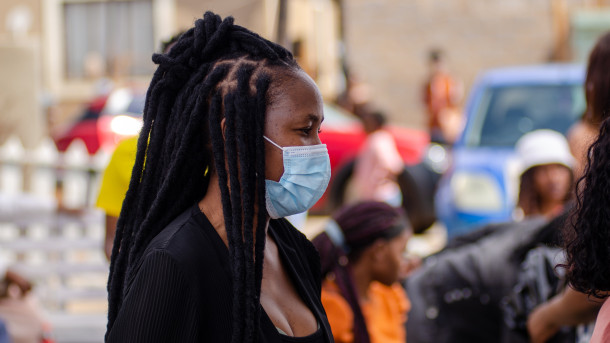
Steward Masweneng on Unsplash
Digitalisation during the pandemic: Metropolitan experiences from the “urban continent”
Urban areas in Africa are growing at unprecedented rates, and more Africans now live in urban areas than at any other point in history. Africa has increased its urban population from 32.6 million people in 1950 to 491.5 million people in 2015. The World Bank predicts that, by 2030, Africa will finally be an urban continent, with more than 50% of its population living in cities1. As one of the regions undergoing the fastest levels of urbanisation—and possibly the only continent that will be experiencing population growth by the end of the century—, urban growth can be a driver for development in African cities and metropolitan spaces. However, it is not without its challenges, especially in the wake of the Covid-19 pandemic.
This rapid urban growth involves increased employment opportunities and a larger workforce, but also has an impact on housing, infrastructure, transportation, energy, and basic services such as education and healthcare. The Covid-19 pandemic has exposed new vulnerabilities in social structure, infrastructure, and governance systems. African cities have been particularly vulnerable, with some experts—including the head of WHO—predicting a catastrophe for the continent.
Facing this challenge has required new approaches to planning, administrative coordination, funding and service provision. African cities have been able to defy the worst predictions and have avoided the exponential death and transmission rates seen in many other parts of the world. African policymakers have implemented many digital solutions to fight the pandemic at a local, regional, national and continental level.
Based on educational content designed by Metropolis, and co-organised by UCLG Africa, the learning programme “Metropolitan governance in Africa”, aims to present the current situation in metropolises on the continent, and show how metropolitan governance with a gender perspective can be the key to facing the challenges and threats surrounding metropolitan areas in the “urban continent”. This learning programme consists of four sessions, three of them held during the second semester of 2021.
The first webinar analysed different metropolitan governments models (metropolitan governments, sectoral metropolitan agencies, vertical coordination, voluntary cooperation) while looking at the situation in Africa. The session, which included experts from City Insight, compared the theoretical framework to the African context and then analysed how to implement gender mainstreaming.
In terms of gender equality, African metropolises have a lower percentage of women in local government than the world average. Sue Bannister, co-director of City Insight, had some recommendations for a more gendered approach in the future, such as inclusivity, diversity, equal rights, empowerment, addressing Gender-Based Violence, the safety and accessibility of transport services and similar, cooperation and communication between stakeholders, and capacity and capability building.
The second session, which was based on educational content from the publication ‘Right to metropolitan city in the framework of the NUA and the 2030 Agenda’, addressed the importance of reconsidering the right to the city in a metropolitan context that reflects current urban dynamics. The session also analysed four different examples of the right to the city in an African context: the right to housing; the right to public space; the right to urban security from a feminist perspective; and the right to metropolitan mobility.
The third webinar was an opportunity, first and foremost, to understand the issues of sustainability, resilience and urban intelligence, and second, to explain how they are embodied at a metropolitan scale. Last but not least, it focused on the challenges and obstacles that African cities and metropolises face in deploying resilience strategies and innovative digital solutions.
In this session, participants were able to learn more about different experiences in Morocco (from Fez in particular) and South Africa. For example, as Kate Joseph, Deputy Director of Strategy and Research for the City of Johannesburg, explained, her city is responding to current residents’ needs through different initiatives and policies that focus on increasing quality of life by making mobility and administrative procedures easier through digitalisation. However, they also face obstacles in terms of governance, such as challenges related to funding, political changes or a legal system that is lagging behind.
During the fourth and last session of the Learning Programme, titled “Peer Learning From Local Experiences” and due to be held online on 17 February, city managers from a number of African cities and metropolitan spaces will participate in a peer review of their local experiences in facing the challenges of rapid urban growth and the Covid-19 pandemic, explaining the role of digitalisation in their cities first-hand.
Although most African cities have focused on providing basic services, such as access to water and sanitation in the most vulnerable neighbourhoods, in order to mitigate the spread of the virus, the Covid-19 pandemic seems to have encouraged digitalisation. The result will accelerate Africa’s transformation and make the continent more resilient to future crises.
1. Kessides, C. (2006) The Urban Transition in Sub-Saharan Africa: Implications for economic growth and poverty reduction. Washington, DC: World Bank.
For more information about the learning programme and the upcoming session, please click here.

